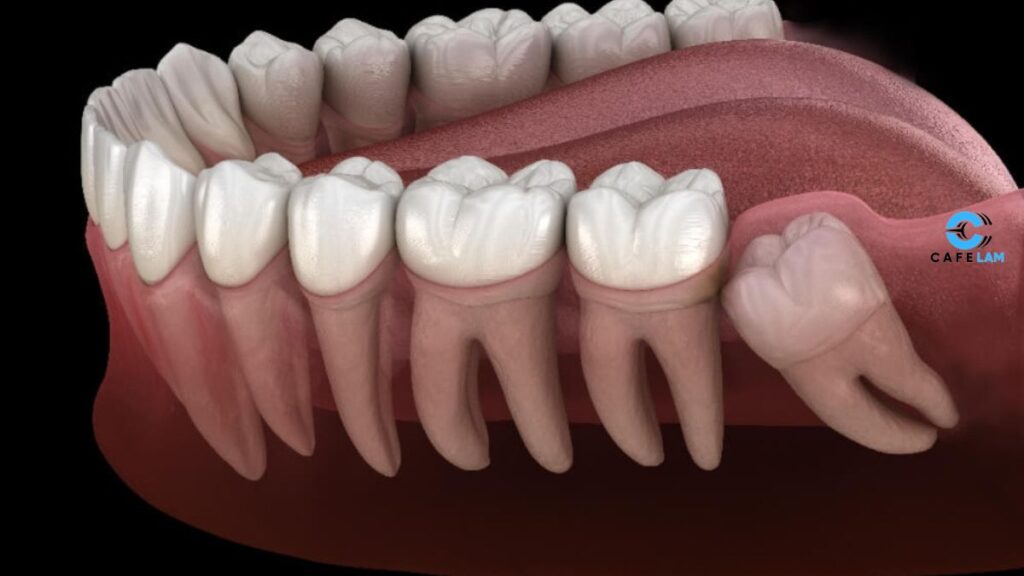Most people expect some discomfort when their wisdom teeth emerge. A little tenderness, maybe some swelling—these seem like normal parts of growing up. But sometimes wisdom teeth transform from a minor inconvenience into a serious dental emergency that requires immediate professional attention.
Understanding when wisdom tooth pain crosses the line from manageable to urgent can save you from complications that extend far beyond your mouth. Recognizing these warning signs early helps you make informed decisions about your oral health and know when it’s time to seek emergency care.
The Difference Between Normal and Alarming Symptoms
Typical wisdom tooth discomfort includes mild to moderate pain, slight swelling around the gum line, and occasional jaw stiffness. These symptoms often come and go as the tooth gradually erupts through the gum tissue.
Emergency symptoms are more severe and persistent. Sharp, throbbing pain that doesn’t respond to over-the-counter medications signals a problem. Significant facial swelling, especially if it affects your ability to open your mouth or swallow, requires immediate attention. Fever accompanying wisdom tooth pain often indicates infection.
If you notice pus discharge, a foul taste in your mouth, or bleeding that won’t stop, these are clear signs that your wisdom teeth have moved beyond normal eruption discomfort.
Common Complications That Require Emergency Care
Pericoronitis: When Gums Become Infected
Pericoronitis occurs when bacteria accumulate under the gum flap covering a partially erupted wisdom tooth. Food particles and plaque become trapped in this pocket, creating an ideal environment for bacterial growth.
The infection causes severe pain, swelling, and difficulty opening your mouth. Left untreated, pericoronitis can spread to other parts of your head and neck, potentially becoming life-threatening.
Impaction Problems
Wisdom teeth often lack sufficient space to emerge properly, leading to impaction. Horizontal impaction occurs when the tooth grows sideways into the adjacent molar, causing intense pressure and pain. Vertical impaction happens when the tooth attempts to erupt but gets stuck beneath the gum line.
Both types can damage neighboring teeth, create cysts, or cause severe crowding that undoes years of orthodontic work.
Abscess Formation
An abscessed wisdom tooth develops when infection reaches the tooth’s pulp or spreads to the surrounding bone. This creates a pocket of pus that causes excruciating pain, facial swelling, and systemic symptoms like fever and fatigue.
Dental abscesses can spread rapidly through your bloodstream, potentially leading to sepsis—a life-threatening condition that requires immediate medical intervention.
When to Head to the Emergency Room vs. Urgent Dental Care
Seek emergency room care immediately if you experience difficulty swallowing or breathing, high fever above 101°F, severe facial swelling that affects your eyes, or rapid spreading of infection symptoms.
Contact an emergency dentist for severe tooth pain that prevents sleep or normal function, moderate swelling confined to the jaw area, persistent bleeding, or signs of infection like pus discharge.
Many dental practices offer after-hours emergency services. If you need an emergency dentist in Layton, research which local practices provide urgent care outside regular business hours before you find yourself in pain at midnight.
Immediate Relief Strategies While Seeking Care
While waiting for professional treatment, several techniques can help manage severe wisdom tooth pain. Rinse gently with warm salt water every few hours to reduce bacteria and inflammation. Apply a cold compress to the outside of your cheek for 15-20 minutes to minimize swelling.
Over-the-counter anti-inflammatory medications like ibuprofen often provide better relief than acetaminophen for dental pain because they address both pain and inflammation. Follow package directions carefully and don’t exceed recommended dosages.
Avoid extremely hot or cold foods and beverages, which can worsen sensitivity. Stick to soft foods that don’t require extensive chewing, and avoid the affected area when brushing and flossing.
Prevention: Your Best Defense Against Wisdom Tooth Emergencies
Regular dental checkups allow your dentist to monitor wisdom tooth development through X-rays before problems become emergencies. Many dental professionals recommend preventive extraction when wisdom teeth show signs of impaction or insufficient space.
Maintaining excellent oral hygiene becomes especially important during wisdom tooth eruption. Use an antibacterial mouthwash to reduce bacteria around partially erupted teeth, and consider a water flosser to clean areas that regular floss can’t reach.
Taking Action Before It’s Too Late
Wisdom tooth problems rarely resolve on their own. What starts as minor discomfort can quickly escalate into serious complications requiring extensive treatment. Trust your instincts—if something feels wrong, seek professional evaluation promptly.
Don’t let embarrassment about dental anxiety or concerns about cost delay necessary care. Emergency dental problems typically become more expensive and complicated when left untreated. Most dental practices offer payment plans or financing options to make urgent care accessible.
Your oral health directly impacts your overall well-being. Taking swift action when wisdom teeth become problematic protects not just your smile, but your entire body from the potential spread of infection. Schedule that consultation today if you’ve been putting off wisdom tooth evaluation—your future self will thank you.







